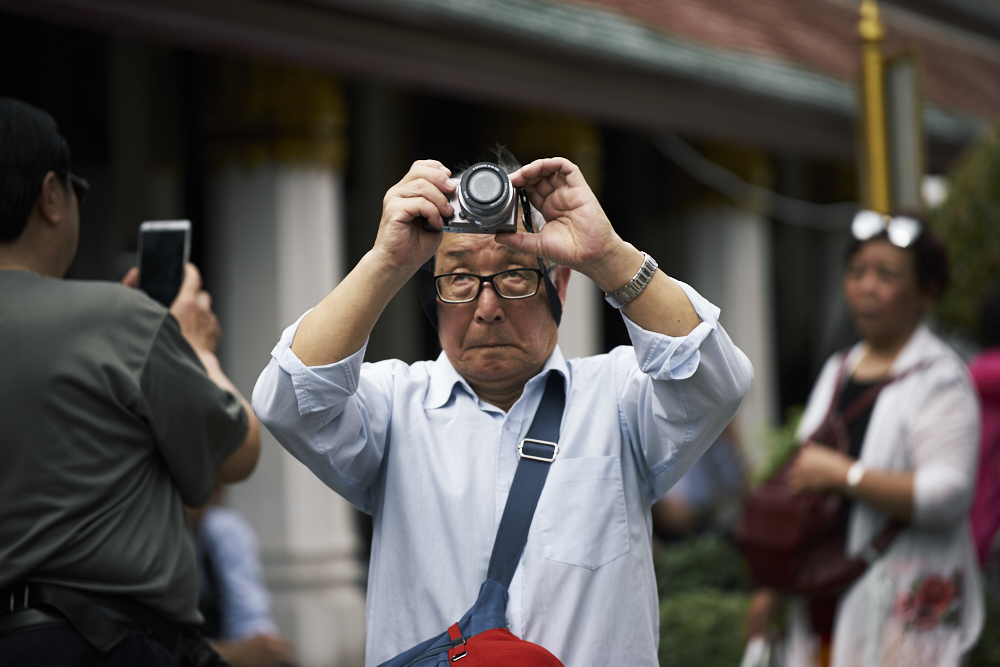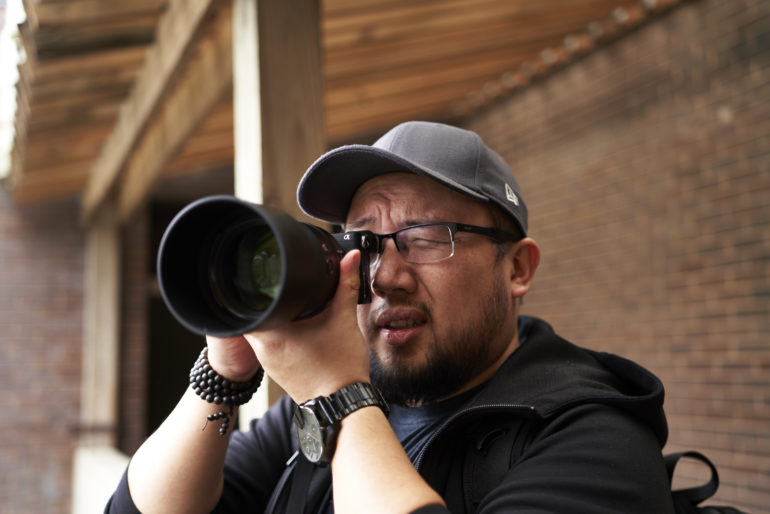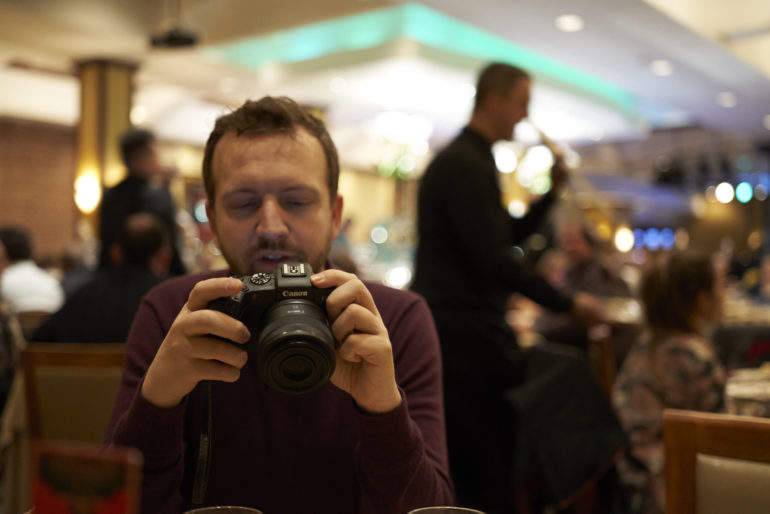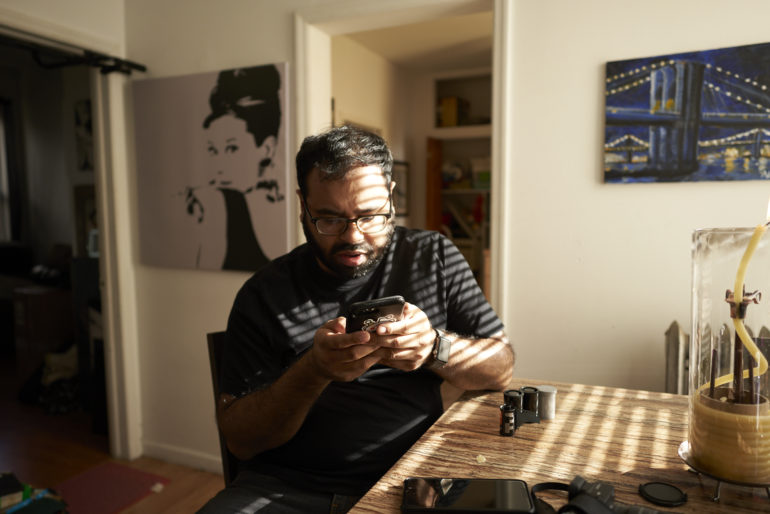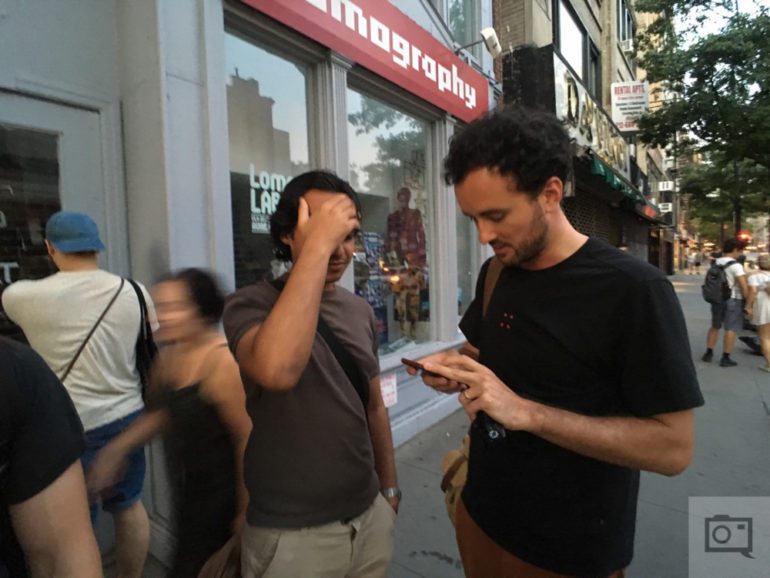Last Updated on 10/01/2020 by Chris Gampat
We’ve all found our way into the photographic community at different times, in different ways, with enormous hurdles to surpass, no matter which way we found ourselves falling into this passion and career path.
Whether college-educated, self-taught, or anywhere in between, it’s undeniable that the barriers of entry to our community can at times seem insurmountable. Regardless of how spectacular your undergraduate program, the dedication of your instructors, or your determination to learn as much as possible as quickly as possible, inevitably we’ve all discovered roadblocks, gotten stuck, or were at a loss of where to turn to for help. This is where I believe the most powerful, positive tool available to us can be found when provided ethically, responsibly, and synergistically – mentorship.
Why Mentorship?
Too often, our industry is filled with hyper-competitive behavior and mistrusting attitudes. There are folks looking to take advantage of younger, less experienced, or emerging artists. I always hear the chronic complaints:
-
- “these young guns are ruining the industry, willing to work for nothing,”
- “they don’t understand the first thing about licensing, they’re killing rates!”
- all manner of criticisms about the lack of knowledge, dilution of money, and lower standards of work.
You know what fixes every one of those issues? Teaching them what they currently don’t know, and I don’t mean by charging them for it. It’s deeply disturbed me to see more advanced photographers turn their expertise into ways to make money on the backs of artists just trying to break into the industry, at a time when they are most vulnerable, with less ability to make money and certainly less knowledge of how to do it. I know I had terrific mentors (Ryan Hulvat, Andrew Hetherington, Steve Giralt, Liam Alexander, and Tony Gale, just to name a few of the fantastic photographers who have encouraged and supported my art). They taught me the things I didn’t know I didn’t know. They took the time to fix my knowledge gaps, inform me of industry standards I had not yet encountered, and advise me on better business practices at a time where I could not afford to invest more in my art. I already had nothing to spend. They provided resources, insight, and education out of the goodness of their hearts and the desire to keep our industry healthy, vibrant, and strong. Without them, I never would have learned the importance of personal projects, the nuances of pricing, licensing, negotiating, or the ways to build the all-powerful networking circle. It may sound like an act of supreme generosity. This is a large donation of time, energy, and a big commitment when it’s already a challenging path to pursue a career as a photographer. I would argue it’s also one additional thing – immeasurably smart.
Without the fabulous photographers who took me under their wings, I would still be struggling and falling into the same potholes that claimed them in their early days. I’d learn the same mistakes they did by firsthand experience, rather than their tales of woe and warning. Some folks in our community act like we all need to make the same mistakes. I would argue that, in a world where our industry changes so quickly and is so complex, when someone is trying to break into the field, they will have whole new sets of lessons to learn. Why make them struggle through the same painful processes we went through when they will have trials and tribulations of their own? Save them from additional pain, reflect on and share past mistakes so that new, budding artists can deal with the latest issues at hand that always come up in our industry. (Here’s a great thing to also note: they can teach us too.)
We too often think of mentorship as a one-way street, a gift given but not received – this couldn’t be farther from the truth. In this choice of career, we can never stop learning, or we stagnate, age out, and become irrelevant. Mentoring can be as much of an education for yourself as it is for your mentee. They may be young, new, or inexperienced, but that does not mean they are stupid, uninformed, or without an ability to teach you a thing or two. My interns show me things regularly, and I welcome their unique perspectives, insights, and opinions. Just because I’m older does not mean I am always the wiser one, Having an ability to recognize that is one of the best business practices you can bring to the table. Running in this race long enough never equates to having learned enough to stop seeking new education. There is always more to receive and to learn, and providing mentorship to those seeking it has provided me with so much while enriching my own business more than I can convey.
How to Mentor Responsibly
I always encourage and advocate for paying your interns, and there are certainly more than enough examples I could reference where the photographers in question took advantage of interns looking to learn in unpaid internships. That said, we as a community frequently run into the issue of too much work and not enough money, If we aren’t iconic image makers like Steve McCurry, Annie Leibowitz, or David LaChapelle, we may not be able to afford interns in the traditional sense, as much as we may need their help. You may not be able to pay them a living wage, but you can still make sure you repay them as comprehensively as the help they are providing you. As someone who interned for free and learned very little in comparison to what I gave, I am adamant about making sure I support my mentees as much as they help me. This creates synergistic, enthusiastic energy on both sides. Meeting up with my mentees is one of my favorite things. I love getting to share ideas with them and work with them. There is a myriad of ways to pay back the work they’re providing you. The beauty of it is you can be as creative as you want to, if you take the time to understand what your mentees need from you too.
First, take the time to get to know them. Know them as people, as artists, as passionate human beings who want to make an impact on this planet. When you understand what drives them, what their hopes, dreams, and aspirations are, the better the position you are in to provide them insightful feedback and constructive criticism. How can you help them find their way if you don’t yet know where they want to go? This, to me, is the first, most critical step in creating a symbiotic relationship that benefits both parties equally. Once this has been established, you can build more powerfully and productively the work you take on together.
Next, take that insight and use it to inform the help you aim to seek from them. I always make sure the tasks I give to my mentees are as beneficial for them to do as it is for me having it done. I am committed to avoiding mindless busywork, to the best of my abilities. If they want to learn about digital asset management, I ask for their help with maintaining my archive, and I make sure that they take away the lessons learned that will benefit the management of their own files. If they want to learn about retouching, I ask for help in getting my Wacom tablet issues resolved so that they start to learn the equipment while the tool I need for teaching them retouching down the road is fixed. And always, always, always build in time for their needs/questions/issues too. When I schedule a session, if we’re working for 4, 5 hours, I always reserve at least an hour of that for them to pick my brain, ask advice, or get feedback on things they’d like to talk through.
Provide them the opportunities you can. You may not be able to pay them financially, but you can still pay them with education and experience. Teaching a paid workshop? Allow them to sit in for free. Already booked and getting another inquiry? Refer them for the work if they can handle the assignment. Can’t pay them yourself? Use your network and community to help them find work within the industry, rather than letting them make ends meet by working unrelated jobs like bartending or waitressing. Don’t view that support as a threat to their continued dedication in helping you. My fantastic intern, Elsa Espino, worked at SweetGreen when we found each other, and once we established that she wanted to photo assist/freelance, we worked together to help her find a part-time, flexible position in the industry that would allow her to start building that kind of work. (Thank you to some of my favorite Fotocare folks, Tony and Fred, for pointing us in the right direction!) Not only is she now working in the field instead of outside it, but she also has access to equipment/gear that presently she could not invest in or rent, and an ability to connect with more people in our industry. Best of all, she still has the time and energy to continue working with me, and more importantly, she wants to because she wants to support me as much as I continue to help her. The biggest takeaway I want to leave you with is that all this positive energy costs me nothing – it just required simple ask from some friends who have also supported me. And even more importantly, if someone took the time to be a mentor to you, pay it forward, continue the lineage of goodwill – if you can be committed to doing it ethically and responsibly.
When you are passionate about and committed to the role you can play in mentoring other photographers, you can positively impact their lives, futures, and careers as much as they can enrich and support yours. It’s always been my feeling, and especially writing this piece, more than ever I’m left wondering: why wouldn’t you want to do that?


